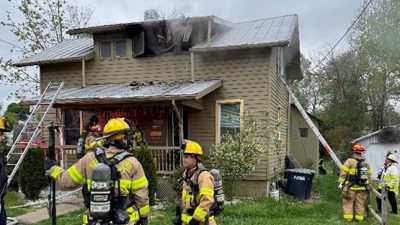
As the temperatures rise across Virginia, extreme heat can have a significant impact on everyone’s safety, but they can be especially stressful and confusing for individuals with Alzheimer’s and other dementias, according to the Alzheimer’s Association.
Alzheimer’s disease causes a number of changes in the brain and body that may affect their safety, including changes in sensitivity to temperatures.
There are more than 150,000 Virginians living with Alzheimer’s disease.
Taking measures to plan ahead can prevent injuries and help a person with dementia feel more relaxed and less overwhelmed.
“People living with Alzheimer’s and other dementia can be vulnerable during extreme weather because their judgment may be impaired and they may be unable to communicate discomfort,” said Jeanne Snyder, Community Executive, Alzheimer’s Association Central and Western Virginia. “It’s really important to take extra precautions with these individuals when there is extreme heat or other excessive weather conditions.”
Safety tips
- Make a plan. Family and friends should prepare accordingly and make plans to regularly check-in on a person living with Alzheimer’s disease and other dementias during extreme heat. Arrange alternative plans for cooler spaces, if air conditioning is unavailable, and dress in loose, light clothing.
- Pay attention at night. Keep people living with Alzheimer’s disease and other dementias cool by using fans and keeping the air conditioning on. At night, low temperatures can still exceed 75 degrees with little fluctuation in humidity levels, making for difficult and exacerbating sleeping conditions, heightened anxiety and increased agitation.
- Prepare for behavioral challenges. Research shows that heat can increase agitation and confusion in people. Try to remove behavioral triggers by addressing the person’s physical needs related to the heat, then tending to their emotional needs.
- Stay hydrated. Increased water intake is essential to maintaining good hydration and health during extreme heat. Know the signs of heat exhaustion to avoid heat stroke. Dehydration may be difficult to notice in a person living with Alzheimer’s disease and other dementias, as signs like increased fatigue, dry mouth and headache may be difficult to detect. People taking diuretics, sedatives, or certain heart medication may not sweat as much as others, but this does not mean that they are not hot.
- Stay indoors and out of the sun. Heat stroke and heat exhaustion may occur in extreme heat conditions but symptoms may be difficult to detect in people living with Alzheimer’s and other dementias. Keep individuals cool by using air conditioning at home or move to a public place, such as a senior center or shopping mall. If you must go outside, be sure to dress appropriately, loose, light clothing, wear a hat, and apply sunscreen with an SPF of at least 30 or higher.
- Stay informed. Keep an eye on local weather forecasts. High temperatures are not the only cause for concern. Humidity and air pollution indices can cause breathing difficulties. The person should be monitored regularly and seek medical attention if symptoms arise of dehydration, heat exhaustion, or heat stroke.
For more information, visit alz.org or call the 24/7 helpline at (800) 272-3900.










